Private labeling supplements is a strategic approach that has gained significant traction in the business world. It involves partnering with a manufacturer to create and market products under your brand name. In the competitive supplement industry, private labeling offers a unique avenue for businesses to establish their presence.
Understanding Private Labeling
Private labeling in the context of supplements involves a brand owner collaborating with a manufacturer to produce products that are then marketed under the brand’s name. This process allows businesses to bring high-quality supplements to market without the need for extensive resources and infrastructure. It’s crucial to recognize the key players in this process, including the manufacturer responsible for production and the brand owner who controls branding and marketing.
The advantages of private labeling supplements are multifaceted. It presents a cost-effective solution, enabling businesses to enter the market without the substantial upfront costs associated with product development. Additionally, private labeling offers brand control, allowing businesses to shape their identity and maintain consistency across products. Quick market entry is another notable benefit, allowing brands to respond promptly to market demands.
Benefits of Private Labeling Supplements
One of the primary advantages of private labeling supplements is its cost-effectiveness. By leveraging the existing formulations and production capabilities of a manufacturer, businesses can significantly reduce their upfront investment. Financial flexibility allows companies to focus on marketing and customer acquisition while maintaining stability.
Brand control is a critical aspect that sets private labeling apart. Businesses can dictate the branding elements, ensuring a cohesive and recognizable identity across their product range. This control extends to packaging, enabling customization that aligns with the brand’s vision and resonates with the target audience. This enables businesses to create a unique market niche.
Businesses can enter the market quickly to capitalize on emerging trends. Private labeling allows for swift product development and launch, enabling brands to stay agile and responsive to shifting consumer preferences.
Choosing the Right Manufacturer
Selecting the right manufacturer is a pivotal step in the labeling process. Considerations should extend beyond cost to include factors such as reputation, production capabilities, and adherence to quality standards.
Communicating effectively with the manufacturer is crucial for a successful partnership. Regular updates, clear expectations, and collaboration ensure a smooth and productive relationship.
Quality assurance and certifications are non-negotiable in the supplement industry. Verify that the chosen manufacturer adheres to relevant quality standards and possesses certifications that instill confidence in the product’s safety and efficacy. Thorough due diligence in this stage pays off in the long run, ensuring that the private labeled supplements meet or exceed industry standards.
Product Development and Customization
Understanding the target audience is foundational to successful labeling. Conduct market research to identify the preferences of consumers, emerging trends, and unmet needs. Armed with this knowledge, businesses can customize supplement formulations to cater specifically to their audience.
Customizing formulations extends beyond ingredients to packaging. The appearance of a product has a significant impact on consumers’ choices. Thoughtful and attractive packaging design contributes to brand recognition and can be a powerful tool in establishing a connection with consumers.
Legal and Regulatory Considerations
Navigating the legal landscape is essential for a successful private labeling venture. Compliance with FDA regulations for dietary supplements is paramount. Familiarize yourself with labeling requirements and guidelines to ensure that products meet regulatory standards. Clear communication with legal professionals specializing in the supplement industry can provide invaluable insights and guidance.
Branding and Marketing Strategies
Creating a robust brand identity is a crucial aspect of succeeding in private labeling. Establish a brand that reflects your values and resonates with your target audience. Consistency across marketing channels, from online platforms to physical retail spaces, enhances brand recognition. Implement effective marketing strategies to promote private labeled supplements, leveraging digital marketing, social media, and other relevant channels.
Challenges in Private Labeling
While private labeling offers numerous advantages, it’s essential to acknowledge potential challenges. Hurdles may include competition, market saturation, and unforeseen regulatory changes. Developing strategies to overcome challenges, staying informed about industry developments, and maintaining realistic expectations are key elements for sustained success in private labeling.
Empower Your Brand with Private Labeled Supplements
In conclusion, private labeling supplements offer an excellent opportunity for businesses to succeed in the competitive supplement industry. By understanding the intricacies of private labeling, choosing the right partners, and implementing effective branding and marketing strategies, businesses can carve out a niche and establish a robust presence.
The benefits of cost-effectiveness, brand control, and quick market entry make private labeling a strategic choice for those looking to make a mark in the supplement market. If you’re ready to elevate your brand through privately labeled supplements, contact us today to explore this exciting avenue for business growth.







